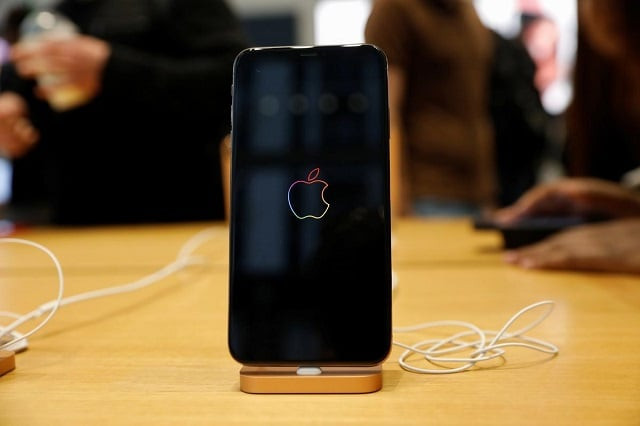Study shows Apple devices in combo with apps could identify dementia
The study also aimed to differentiate people with the pre-dementia stage of Alzheimer’s disease

The new Apple iPhone X are seen on display at the Apple Store in Manhattan, New York, US, September 21, 2018.
PHOTO: REUTERS
US lawmakers take jabs at Amazon, Big Tech in antitrust hearing
The study, tested in 113 participants over the age of 60, was conducted by Apple along with Eli Lilly and Evidation Health.
The Apple devices were used along with the Beddit sleep monitoring device and digital apps in the study.
The researchers looked at device usage data and app history of the study participants over 12 weeks.
People with symptoms tended to have slower typing than health volunteers and received fewer text messages in total.
The participants were also asked to answer two one-question surveys daily as well as perform simple activities every two weeks, such as dragging one shape to the other and tapping a circle as fast as possible on an app.
Apple reinstates parental control app removed over privacy concerns
The study also aimed to differentiate people with mild cognitive impairment, the pre-dementia stage of Alzheimer’s disease.
The early results were presented at a conference in Alaska on Thursday.



















COMMENTS
Comments are moderated and generally will be posted if they are on-topic and not abusive.
For more information, please see our Comments FAQ